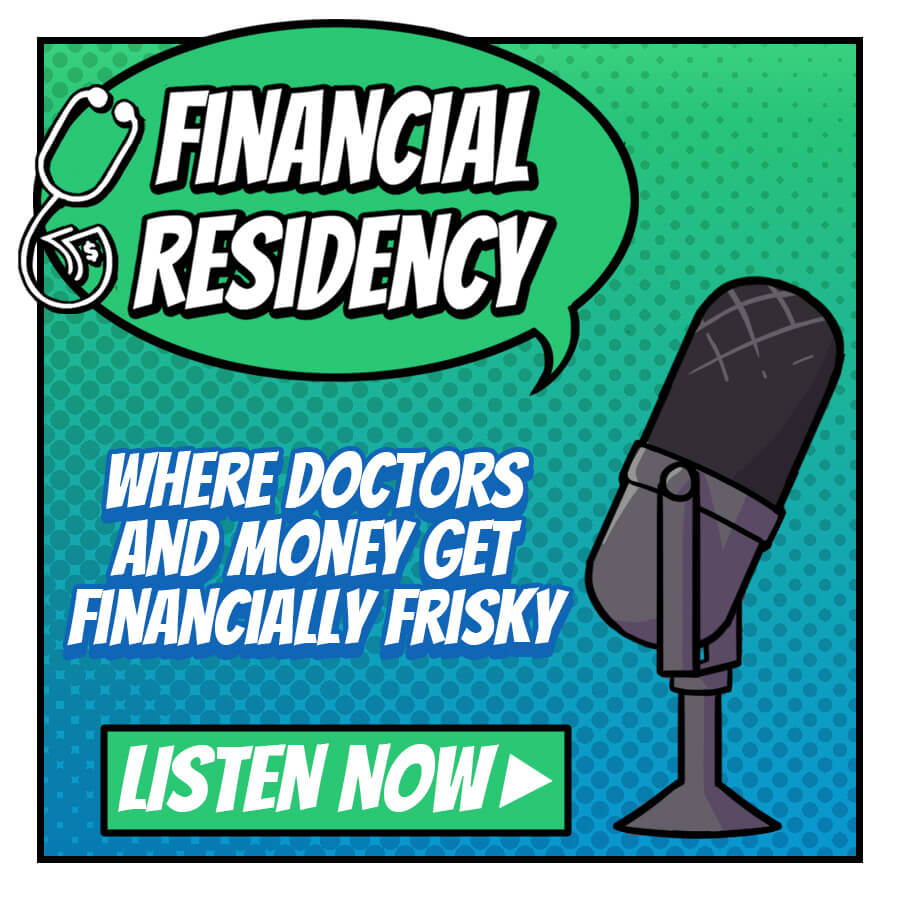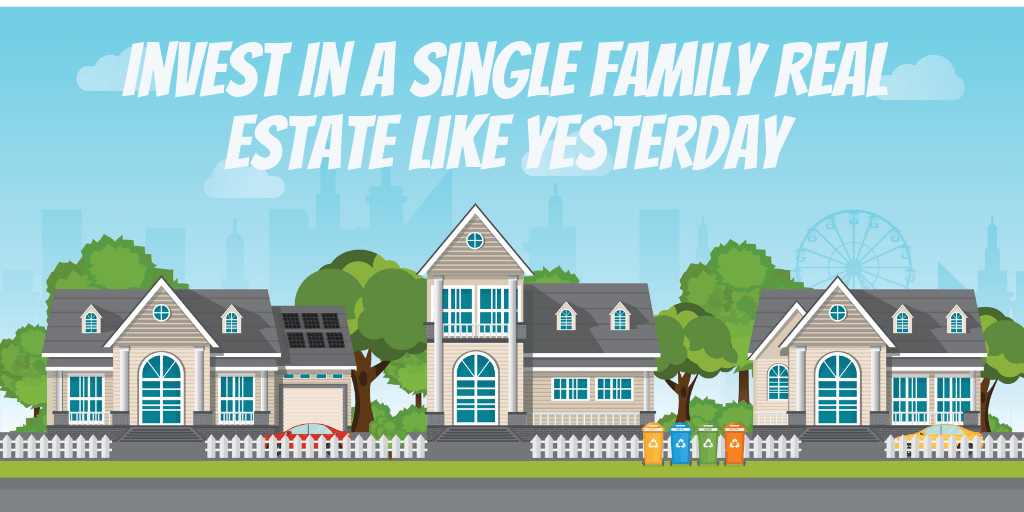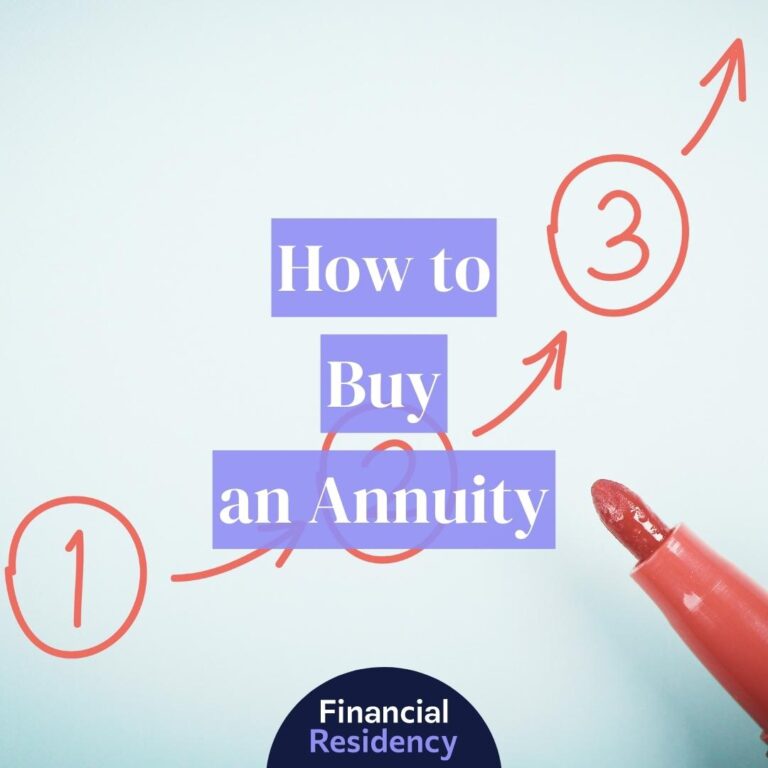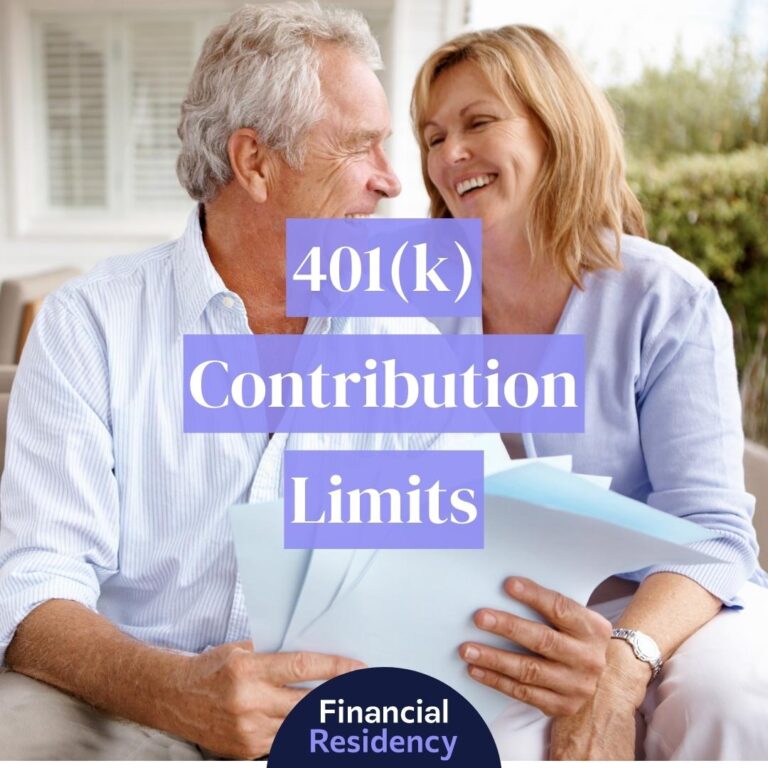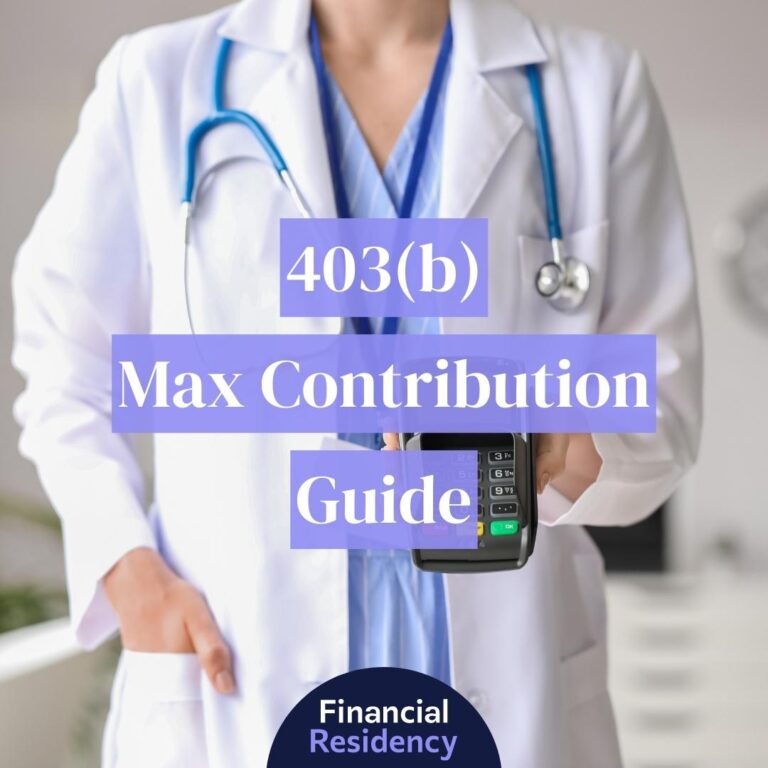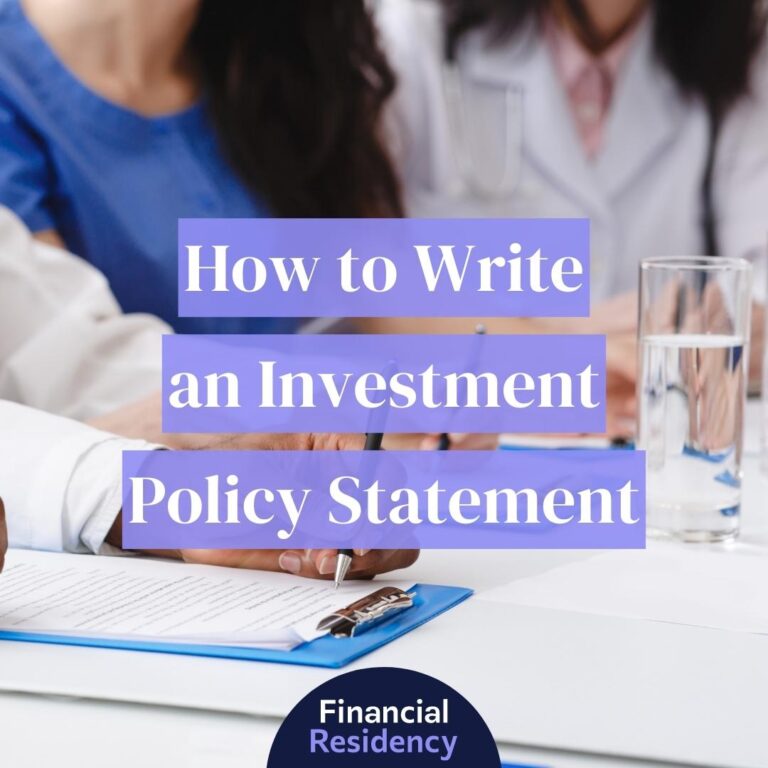There are so many ways to create passive income as a physician. However, investing in real estate is fast becoming one of the most popular ways.
It’s not a secret that I love investing in real estate.
And while there are many ways to achieve financial independence (which is enough income from investments to cover all your current and future expenses), for this money nerd, it’s challenging and worth it financially.

Many physicians who have hit FI or want to hit FI, are still interested in practicing medicine–on your own terms. The goal is for you to be financially at a point where you’ll work the hours and schedule that you want.
The biggest question on your mind (and many others) is how to get started.
While I don’t want to ignore the stock market investing side of this question, I’ll write mostly about the real estate side.
Let’s dive into topics around investing in real estate!
But first a word about the stock market…
Stock Market
Let’s look at the stock market portion of your portfolio, which includes stocks and bonds, and you will want to be maxing out your retirement accounts via your employer.
This might be a 401k, 403b and potentially a 457 (likely the 457 if you work for the government or a non-governmental 457).
You will also want to max out your IRA (hopefully doing a backdoor Roth each year for you and your spouse) as well as maxing out your HSA each year. Family contribution rate for 2020 is $7,100 ($3,550 for single).
Are you on the FI path?
If you are looking for the RE (retire early) part of FIRE, you’ll need to save and/or invest in either a taxable account or a use a portion of it to invest in alternative investments like rental real estate.
What was that?
Investing in real estate?
Considerations for Generating Passive Income
Here are some things to consider when investing in real estate:
- Deals might be hard to find if you have limited time – multiple listing service MLS
- Deals might not work in your area – out of state is very tough without a team behind you
- Returns may be lower if you can’t DIY
- Bad renters can really crush returns (aka cash flow you might need to live off of with poor planning)
Investing in real estate is nice because you can literally see and touch your investment. It also gives you a tax break and it’s a great way to build wealth.
However, the downside is you may not be landlord material. Some personalities can’t handle all of what investing in real estate requires from you.
You can learn about investing in real estate, then you can decide how much interest you actually have in being a landlord.
True or False?
There’s no such thing as passive income (Truth).
There’s a lot of buzz going around about passive income, but let’s look at facts.
It takes time and energy to acquire the property (analyzing deals, perusing MLS for good deals, talking with agents, and signing the loans).
I manage properties myself, so I can tell you that after you purchase a property, each and every one of them will require some work on a monthly basis (organizing and working on spreadsheets, fixing things that renters break or dealing with a property manager).
It absolutely takes time and that needs to be factored into investing in real estate. Your time equals something.
What exactly does it equal?

Return On Investment (ROI)
Is investing in real estate worth it?
Take a look at how much you are getting paid per hour (making an estimate is fine for this).
Next estimate how many hours you need to work to find one deal, get the offer accepted, get loans, sign docs, get the house ready for a renter and then manage it monthly.
This is not official, but let’s look at your ROI.
Let’s say you were paid your actual hourly rate to do the work I just mentioned (or you pay someone else to do the job).
The returns would be dramatically less because you have such a high earning potential.
Think it through and weigh the pros and cons before jumping two feet into the decision.
Everyone is not cut out to be an investor, it’s totally fine if you aren’t. And not everyone should be an entrepreneur (we’re a crazy bunch).
It’s best to figure out if you’re cut out to be an investor or entrepreneur. You could learn the hard way, diving deep into it and then hating it.
It’s called mailbox money. It’s very nice to have, but getting there takes time, effort and money to accomplish and two of those aren’t passive.
One decision, Taylor and I made was not to pay down the debt in one house aggressively because we wanted to buy several homes while the market was favorable.
Now we’re actually looking at selling some of the homes we own and I believe that the market has far outpaced normal healthy growth. In selling it could go up another 10% to 30%.
I think the homes are trading for a very good price, which works in my favor. When the market corrects (and it will), we’ll be ready to start investing in real estate again.
It sounds like I’m timing the market, doesn’t it? I’m willing to do that with real estate. However, it’s something that I’m very against when it comes to stock investing!
Investing in Real Estate vs. Investing in Stocks
Why is real estate different?
Because real estate is truly an inefficient market, yet it’s still exposed to the same human emotions that stock markets are, with the highest of highs and the lowest of lows.
It’s tough to “rebalance” your real estate holdings but this is effectively what I’m doing. I’m selling off a few homes (not all) while prices are high and waiting to have a better entry point once the market cools down.
This might take six months to two years. I’m not in a rush. If the market never returns to levels we see today, I’ll be fine. I still own a few of my better properties.
One positive is that I can cull some of the properties that haven’t done as well and sell them for a premium amount (in order to take some risk off the table).
If we were 100% dependent on that income, this wouldn’t be viable. That’s one reason why I don’t like real estate for a full retirement plan.
Taking the middle ground is the best path–that’s even true when investing in real estate!
On the email list yet? If you’re not, how will you know when our new book, “Financial Residency – Create Your Financial Plan Without the Long Hours or Sleepless Nights” releases? Sign up at www.financialresidency.com/book
